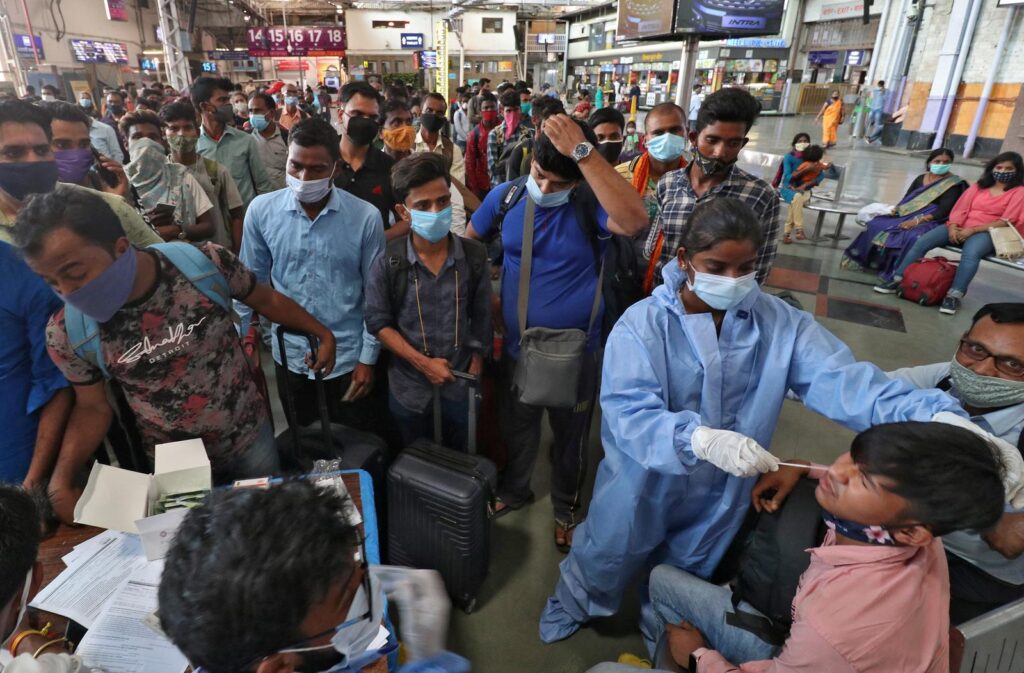Omicron Spreading Faster Than Delta, Infecting The Vaccinated: WHO
Dec 21, 2021 | Pratirodh Bureau
FILE PHOTO: A healthcare worker collects a swab sample from a passenger at a railway station during a rapid antigen testing campaign for the coronavirus disease in Mumbai
The Omicron variant of the coronavirus is spreading faster than the Delta variant and is causing infections in people already vaccinated or who have recovered from the COVID-19 disease, the head of the World Health Organization (WHO) said on Monday.
“There is now consistent evidence that Omicron is spreading significantly faster than the Delta variant,” WHO director-general Tedros Adhanom Ghebreyesus told a news briefing for Geneva-based journalists, held at its new headquarters building.
“And it is more likely people vaccinated or recovered from COVID-19 could be infected or re-infected,” Tedros said.
WHO chief scientist Soumya Swaminathan said that the variant was successfully evading some immune responses, meaning that the booster programmes being rolled out in many countries ought to be targeted towards people with weaker immune systems.
Omicron appears to be better at evading antibodies generated by some COVID-19 vaccines but there are other forms of immunity that may prevent infection and disease, WHO officials said.
“We do not believe that all vaccines will become completely ineffective,” Swaminathan said.
WHO expert Abdi Mahamud added: “Although we are seeing a reduction in the neutralisation antibodies, almost all data shows T-cells remain intact, that is what we really require.”
While the antibody defences from some courses have been undermined, there has been hope that T-cells, the second pillar of an immune response, can prevent severe disease by attacking infected human cells.
Swaminathan, referring to a treatment for people with the disease, said: “Of course there is a challenge, many of the monoclonals will not work with Omicron.” She gave no details.
But the WHO team also offered some hope to a world facing the new wave that 2022 would be the year that the pandemic, which already killed more than 5.6 million people worldwide, would end — with the development of second and third generation vaccines, further development of antimicrobial treatments and other innovations.
“(We) hope to consign this disease of a relatively mild disease that is easily prevented, that is easily treated …and that able to cope easily with this disease into the future,” Mike Ryan, the WHO’s top emergency expert, told the briefing.
“If we can keep virus transmission to minimum, then can bring pandemic to end.”
However Tedros also said China, where the SARS-CoV-2 coronavirus was first detected at the end of 2019, must be forthcoming with data and information related to its origin to help the response going forward.
“We need to continue until we know the origins, we need to push harder because we should learn from what happened this time in order to (do) better in the future,” Tedros said. (Reuters)
